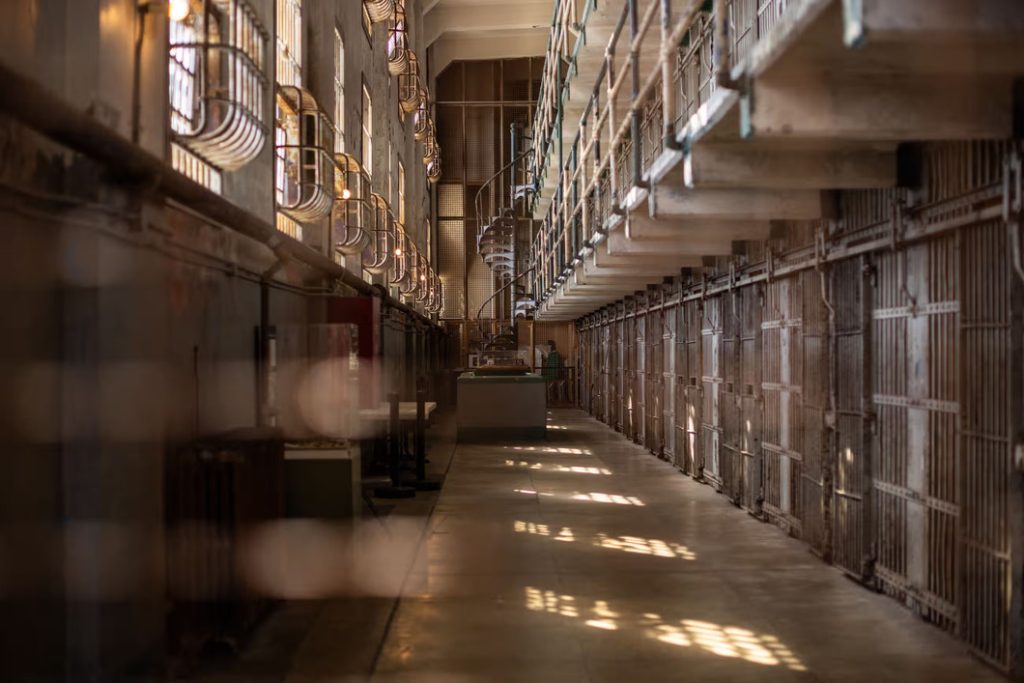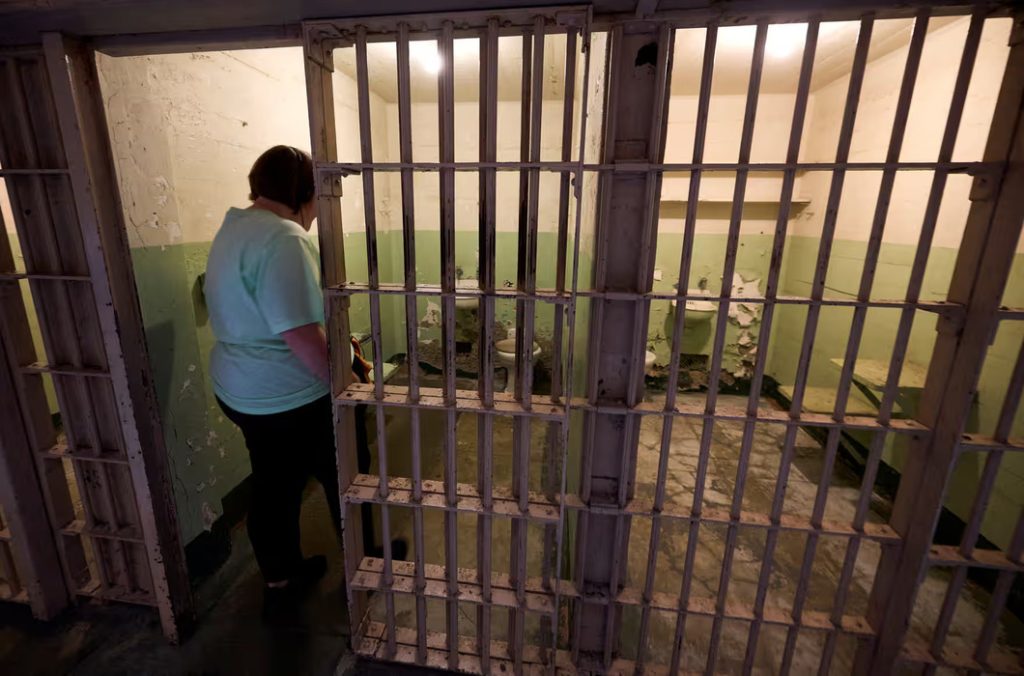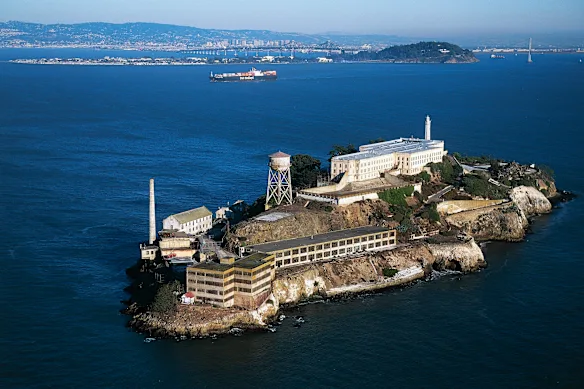Trump’s Plan to Reopen Alcatraz Sparks Debate Amid Broader Push to Revive Closed Prisons
Donald Trump’s recent suggestion to reopen Alcatraz—the infamous island prison closed for over six decades—grabbed global attention over the weekend. However, Alcatraz is just one of several shuttered prisons the Trump administration has targeted for renewed use, particularly as detention centers.
In recent months, the U.S. government has moved forward with efforts to reactivate at least five previously closed detention facilities and prisons, many of which were originally shut down due to safety issues and allegations of abuse. While California officials quickly dismissed Trump’s Alcatraz remarks as unserious and a political distraction, the broader push to reopen controversial facilities has already begun, largely through collaborations with private prison contractors. Unlike the high-profile Alcatraz proposal—touted by Trump as a place to hold the nation’s “most ruthless and violent offenders”—the other facilities are being brought back into use specifically to detain immigrants.
U.S. Immigration and Customs Enforcement (ICE) has been working to bring the California City Correctional Facility back online. Located in the southern California desert, the prison was shut down last year but is owned by CoreCivic, a private company with longstanding ties to ICE. The facility previously held over 2,000 detainees, according to federal contracting records. California Democrats have also sounded the alarm about ICE’s interest in reviving the Federal Correctional Institution (FCI) in Dublin. That federal women’s prison was closed in 2023 amid a major scandal involving widespread sexual abuse by staff, along with concerns about hazardous conditions such as asbestos and mold.
Union officials representing correctional officers have reported that employees were recently made to perform maintenance work at the Dublin facility under dangerous conditions—an indication that preparations for reopening may already be underway. However, neither ICE nor the U.S. Bureau of Prisons, which oversees Dublin, has issued any public statements confirming future use of the site.
California, the most populous state in the U.S. and home to nearly one-quarter of the country’s immigrant population, has historically opposed the expansion of ICE detention centers. Currently, there are no ICE-operated detention facilities north of Bakersfield in California’s Central Valley, noted Susan Beaty, senior attorney with the California Collaborative for Immigrant Justice.

“When ICE has fewer detention beds available, we see fewer arrests and less aggressive enforcement,” said Susan Beaty, an attorney who represents individuals held by ICE and the Bureau of Prisons. “We oppose any effort to expand ICE’s capacity to detain our community members, because increased bed space inevitably leads to more incarceration and further harm to our communities.”
In rural Lake County, Michigan, the private prison contractor GEO Group is preparing to reopen the North Lake Correctional Facility, which can house up to 1,800 people. According to MLive.com, it would become the largest immigration detention center in the Midwest. The facility has previously held incarcerated youth, prisoners from other states, and immigrant detainees, but it has remained unused since it was shut down in 2022 under the Biden administration.
In 2020, detainees at North Lake launched a hunger strike, raising serious complaints about their treatment, including being denied access to their mail and religious meals, destruction of grievance forms, and being subjected to prolonged solitary confinement. GEO Group rejected the allegations at the time.
Meanwhile, in Newark, New Jersey, GEO Group has restarted operations at the closed Delaney Hall facility to detain immigrants, despite facing legal action from the city. Newark officials claim the company reopened the site without securing proper construction permits or allowing inspections, according to NorthJersey.com.
“They’re acting in the same reckless fashion as the president, ignoring laws and assuming they can do as they please,” said Newark Mayor Ras Baraka on Monday.
In response, GEO Group spokesperson Christopher Ferreira stated in an email that the facility holds a valid occupancy certificate and complies with all health and safety standards. He dismissed the mayor’s comments as “yet another politically motivated attack from sanctuary city advocates and open-borders politicians in New Jersey who are trying to obstruct the work of the federal government.”
During a December 2024 earnings call, GEO Group told investors that it was engaged in “active discussions” with ICE and the U.S. Marshals Service regarding interest in six of its currently unused facilities.
In Leavenworth, Kansas, another facility is under consideration for reopening. CoreCivic, a major for-profit prison company, is working to reactivate the Midwest Regional Reception Center, which was shut down in 2021 during the Biden administration. The move has provoked legal resistance from the city of Leavenworth, which filed a lawsuit in March accusing CoreCivic of bypassing required permitting processes.

In 2021, the ACLU raised serious concerns about conditions at the Leavenworth detention center, describing it as plagued by violence, suicides, and rampant contraband. The organization alleged that detainees were routinely denied fundamental necessities, such as adequate food, medical care, and regular access to legal counsel or family. Showers were infrequent, and one federal judge went so far as to label the facility a “hell hole.”
Ryan Gustin, a spokesperson for CoreCivic, defended the company’s long history in Leavenworth in an email sent Monday. He attributed most of the past problems to severe staffing shortages during the height of the COVID-19 pandemic, stating that the issues were “primarily confined to an 18-month window.” Gustin added that the company is now benefitting from improved hiring conditions, with nearly 1,400 people expressing interest in the 300 new jobs tied to the facility’s reopening.
“At all of our facilities, including the Midwest Regional Reception Center, we are committed to high standards of care, training, and staffing—standards that meet or often surpass those required by our government partners,” Gustin said. He also cited a recent opinion piece written by the facility’s warden, who argued that the center “has always been appropriately zoned” for its intended use.
In addition to Leavenworth, CoreCivic recently brought a previously closed family detention center in Texas back into operation.
Reactivating shuttered prisons is just one of several tactics ICE is employing as it expands its capacity for mass immigration detention under directives aligned with Donald Trump’s broader deportation agenda. ICE has also started placing immigration detainees in Bureau of Prisons (BoP) facilities that typically house criminal defendants. This overlap has raised alarms about poor conditions, legal rights violations, and overburdened staff trying to manage mixed populations within the same facility.
Trump’s plan also includes increasing the use of contracts with local jails and repurposing U.S. military bases for ICE detention purposes.
Eunice Cho, senior staff attorney with the ACLU’s National Prison Project, said ICE is disregarding the very safety issues that led to these facilities being closed in the first place. Her organization, which has obtained government documents detailing ICE’s growing detention footprint, warned that these expansions are reintroducing known dangers.
“This is part of an ongoing trend within the Trump administration to knowingly detain immigrants in facilities already notorious for unsafe and inhumane conditions,” said Eunice Cho of the ACLU’s National Prison Project. “These environments are often so extreme that individuals abandon legitimate legal claims to remain in the U.S. simply because they can’t endure the treatment.”
Cho noted that public opposition to these detention centers is growing rapidly. “Once communities understand what’s actually happening inside these facilities, they don’t want it in their backyard. People are realizing that billions in taxpayer dollars are flowing into the hands of private prison companies that confine people—including neighbors, coworkers, and friends—in appalling conditions.” ICE did not respond to requests for comment as of Monday.
Donald Murphy, spokesperson for the Bureau of Prisons, declined to comment on reports about the potential reopening of FCI Dublin for ICE detainees. However, BoP Director William K. Marshall III issued a statement expressing full support for Trump’s agenda. He confirmed that an “immediate assessment” was underway to evaluate “our needs and the next steps” regarding Alcatraz, adding, “We are eager to restore this iconic symbol of law, order, and justice.”
Corene Kendrick, deputy director of the ACLU’s National Prison Project, dismissed Trump’s remarks about reviving Alcatraz as little more than a political performance. She pointed out that the historic prison lacks basic infrastructure, including running water, sewage systems, and reliable electricity.
“I hesitate to even call it a ‘proposal’—that would suggest some level of planning or seriousness,” Kendrick said. “It’s absurd and unrealistic. There’s no feasible way to convert those deteriorating, centuries-old buildings into a modern, functioning prison.”

